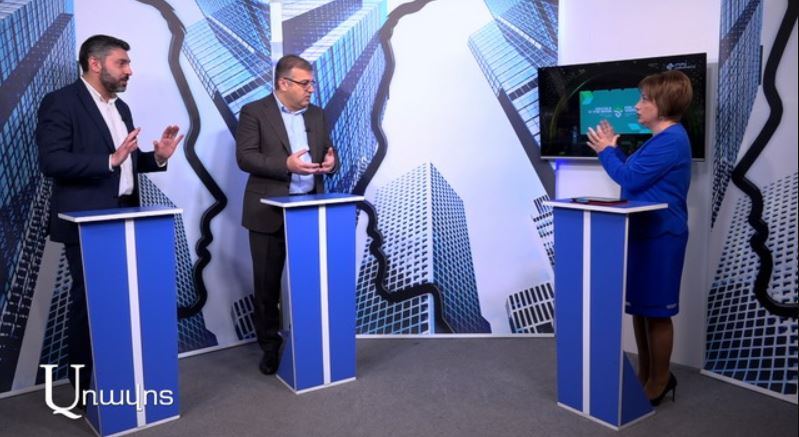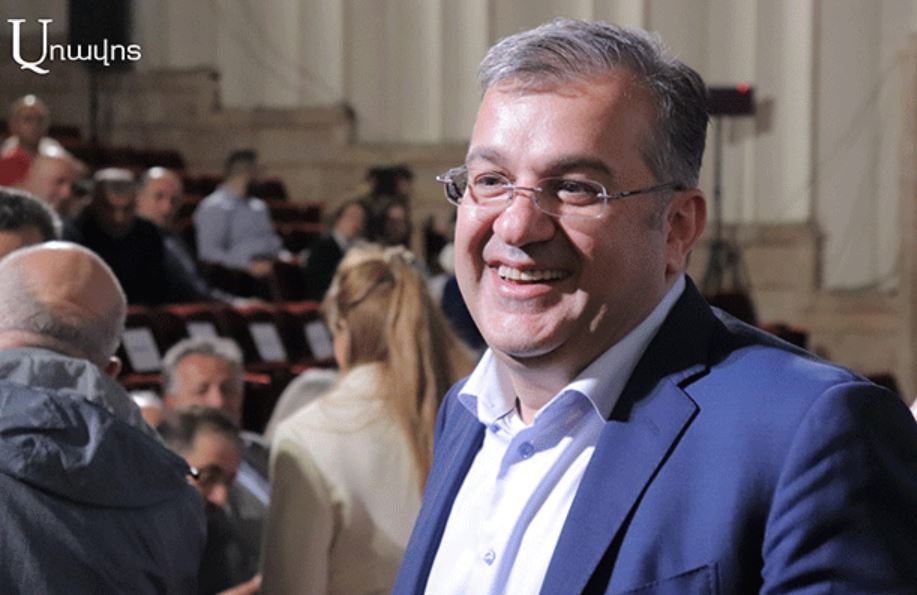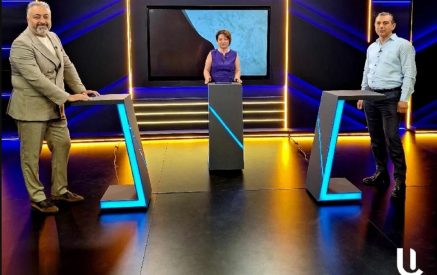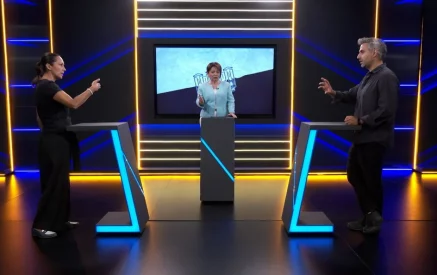The participants of the first Pan-Armenian civil forum, “Future Armenian,” held in Yerevan, believe that the Armenians worldwide should jointly take responsibility for Artsakh and not leave the problem only to the state and citizens of Armenia, moreover, to the people of Artsakh. In response to the question of how this will be implemented in practice, Artak Apitonian, Executive Director of The Future Armenian Development Foundation and the guest of the “Aravot” “Areresum” (“Confrontation”) program, listed some of the discussed ideas: “There were proposals to implement several big projects by the participants of the conference. One is called “Artsakh+10 million”, which implies the formation of a Pan-Armenian consolidation platform by organizations and individuals, a platform that can contribute to the lobbying movement. One of the second essential programs is the coordination of lobbying activities. We have different organizations, and there is a need to coordinate.
Of course, the structures of “Hay Dat” traditionally do a great job; there are also structures related to the “Armenian Congress of America,” and the Armenian General Benevolent Union, and of course, there are structures in the newly created communities that are not associated with the organizations mentioned above, but are actively engaged in lobbying. They are primarily people who emigrated from Armenia. And combining those frames is also an essential function. The third important project related to Artsakh is the creation of the All-Armenian Foundation for Support to Artsakh, which should be a fund managed by new methods.”
After the discussions on “Armenia-Diaspora unity,” it was announced that, according to 57 percent of the participants, there is a crisis of trust in Armenia-Diaspora relations, which can be overcome, but new cooperation platforms are needed. The other guest of the program, Vardan Marashlyan, Co-Founder and the Executive Director of Repat Armenia Foundation, specifically said in this regard: “Since independence, the process of real “sharing” of economic and political power has not taken place, so that the Diaspora becomes a full participant, a partner, not only from the point of view of monitoring but also in an institutional sense, through joint, public-private cooperation formats, through which this trust can be restored: through the involvement of professionals and the development of the right programs. In other words, the potential here is immense. We haven’t followed that path for 30 years, but our challenges are such that we have no alternative; we must constantly push this topic forward.”
83 percent of the voting participants considered it correct to ensure the immigration of emigrants from Armenia. To the question: how would this be done if an amnesty was granted to those who avoided conscription in the past years after the 44-day war, but even that did not help those young people to return to Armenia permanently, Artak Apitonian answered: “It is necessary to try to return those people who have not yet fully settled in the Diaspora, and that is natural. It is especially true for those who have just left. But of course, the problem is multi-layered. First, improvement of economic conditions is necessary. Secondly, it is also necessary to solve certain security problems. But the most important issue, discussed at the conference and remained somewhat unfinished, is creating a certain atmosphere of intolerance towards leaving Armenia.” He clarified that it is not about public dispraise. “In any case, it shouldn’t be an act of encouragement, at least.”
Read also
During the discussion, Co-Founder and the Executive Director of Repat Armenia Foundation noted that they had been working on developing the law “On Repatriation” for at least seven years. “And to this day, it has not even gone to parliament for discussion. After all, the state should define the concept of repatriation, pass a law and begin to seriously implement serious integration processes and prepare the infrastructure for the influx of these people.”
By the way, most of the participants of the first Pan-Armenian civil forum, “Future Armenian,” believe that it is wrong to direct all the forces toward ensuring immigration when there is a high level of unemployment and poverty in Armenia. According to them, without solving the problems of economic development and unemployment, immigration will lead to social tension.
A commentary on this, as well as an answer to the question of whether it is possible to solve the problems discussed at the conference without the State participation- in an entire conversation.
Anna ISRAELYAN






















































